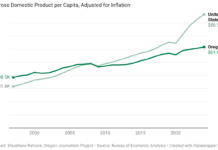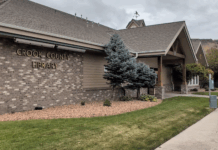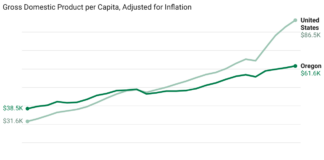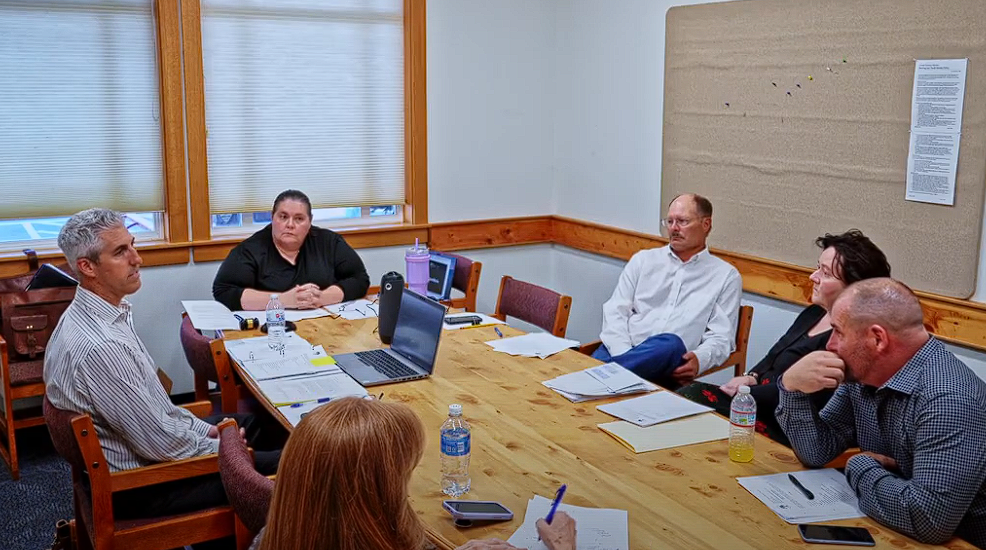
Prineville, Ore. – The Crook County Cemetery District (CCCD) Board announced on Facebook Nov. 1st the appointment of its new head to lead the special district. The final decision, however, appears to have taken place outside of a public meeting in violation of the public meetings laws.
Numerous violations are also alleged by the Prineville Review and others of previously taking place by the embattled public body — adding to the growing list of previous and ongoing public meeting issues and multiple lawsuits seeking injunctions despite the special district having also retained legal counsel in recent months.
The CCCD is an Oregon special district formed under ORS Chapters 198 and 265. Its board members are typically elected by Crook County voters, but all current members have been appointed following four separate resignations within a six-month period this year.
On Oct. 10th, the CCCD Board held an executive session followed by a public meeting. During the executive session, the board appeared to conclude almost immediately after interviewing candidates for its new manager, that interim manager Craig Yulstat would be appointed to the position.
After reaching the public meeting portion later in the day, the board did not hold a vote on Yulstat’s appointment, but did confirm as part of the public discussions that a decision was reached but would be finalized at a later date. The apparent intent to appoint Yulstat was ultimately kept secret from the public as no final decision took place during the public session as would have been required.
Since Oct. 10th, no additional public meetings—or executive sessions—have been held, despite the Nov. 1 announcement on Facebook that Yulstat was appointed to head the district.
Immediately following the decision on Yulstat in executive session, CCCD’s attorney firmly warned Prineville Review photojournalist Zack Calvo not report on their discussion. Board members stated that a vote on the matter would take place during the public session, a detail from the executive session this reporter is revealing in light of the subsequent violation by the CCCD Board. We are not revealing other aspects of the executive session.
The Prineville Review is also investigating an allegation that the CCCD discussed manager salary and compensation behind closed doors. Such discussions are not allowed in executive sessions and must be conducted publicly.
Editorial Note: News media typically prohibited from disclosing the contents of executive sessions, although precedent supports the media's disclosure when a public body appears to have violated executive session provisions and in cases where an final decision is finally made in public. There are also no legal consequences for journalists in doing so -- ensuring the news media can play a vital role as watchdogs of government. The Prineville Review respects the legislative intent of executive session and the trust placed in journalistic ethics to ensure accountability by government bodies.
Preliminary Review underway by Oregon Government Ethics Commission
According to an Oct. 17th letter from the Oregon Government Ethics Commission (OGEC), Director Jamie Wood and former Director Velda Jones are under preliminary investigation for failing to respond to a public meetings grievance submitted by the Prineville Review in August, resulting in the publication’s formal complaint. This grievance followed repeated alleged violations of public meetings laws. Director Gary Bedortha, who didn’t sit on the board until September, was not named in the OGEC complaint, as it only involved actions taken by Wood and former Director Jones.
Bedortha would be subject to the third and fourth respective grievance submitted with the district, but no decision on submitting a formal complaint has yet been made. The CCCD still has until Nov. 29th to respond to the fourth grievance. It missed the Nov. 6th deadline for responding to the third grievance, the date it finally responded to the first.
Additional details will not be available until investigators present their findings and recommendations to the commission.
The letter notes, “[t]he Commission is required to conduct the preliminary review confidentially.”
The grievance and OGEC oversight fall under a new 2023 law providing citizens an alternative to costly litigation to ensure governing bodies comply with public meetings laws, including requirements for access and notification to members of the news media.
The CCCD’s attorneys did respond to a separate grievance submitted on Sept. 10th within the required 21 days. However, they claimed they were unaware of the earlier Aug. 16th grievance, learning of it only on Sept. 10th. Despite this, the attorneys delayed responding to the Aug. grievance until Nov. 6th—57 days after Sept. 10th—72 days after the grievance was initially filed.
The response came after Jones and Wood had been informed of the OGEC’s preliminary investigation over two weeks prior. According to CCCD’s attorney, it provided the response by request of an OGEC investigator and on behalf of the public body itself.
Following the Nov. 1 announcement of the new manager’s appointment, the Prineville Review submitted its fourth grievance against the current CCCD Board.
In the earlier Oct. 10th meeting, CCCD held separate public and executive sessions, avoiding the requirement to allow remote attendance for the media unless others were also attending remotely. It was later revealed that the CCCD Board did facilitate remote attendance for some individuals during the executive session while denying this to the Prineville Review. This forced Prineville Review photojournalist Zack Calvo to attend both the public and executive sessions in person.
According to a Nov. 14th announcement on Facebook, the CCCD Board scheduled its next meeting for today at 1 p.m. The CCCD failed to provide specific notice to the Prineville Review, as required by ORS 192.640. The publication only learned of the meeting on Nov. 20th by checking the CCCD Facebook page.
Oregon law mandates specific notice to interested persons and media representatives who request it, delivered in their preferred manner.
Concerns have grown among citizens about inconsistent board meeting times and locations, especially after controversies surrounding the cemetery grounds at Juniper Haven Cemetery last spring. A June meeting was moved to the larger Bowman Museum due to the increased attendance and included a police presence after requests from the directors.
The board held its August meeting at 2 p.m., sparking some complaints. Historically, meetings were held at 4 p.m. on the second Thursday of each month. Former board member Roxanne Cummings-Basey, who resigned shortly after her appointment, alleged in July that Wood pushed for an earlier August meeting in a smaller space to limit public attendance.
Cummings-Basey stated that she advised Wood such efforts were not in “good faith” and would lead to further issues. Library officials later confirmed to the Prineville Review that Wood booked a smaller meeting room for August, set for 3 p.m. on a Tuesday, while Cummings-Basey arranged for a larger room at the regular time and date.
The Prineville Review previously requested comment from the CCCD about the complaints related to meeting times, but we received no response.
After working with Jones and Wood for only a few days, Cummings-Basey resigned, submitting a scathing resignation letter criticizing Wood and Jones. Cummings-Basey also confirmed that Jones and Wood knowingly engaged in meetings despite being aware of the law. Jones had also resigned shortly before Cummings-Basey but rescinded her resignation after learning of the latter’s departure.
Under Oregon law, officials have three days to rescind resignations. Had Jones not rescinded hers, county commissioners would have been required to appoint new directors, as the board would lack a required majority to appoint replacements.
On Aug. 27, Jones and Wood appointed Bedortha to fill the vacancy left by Cummings-Basey. Bedortha was not present at the meeting. Jones later announced her resignation, effective once Bedortha was sworn in, citing health reasons. Jones served for about 16 years and narrowly won reelection in May 2023 with 37.58% of the vote.
Jones had faced challenges from Jack Radenberg and Anna Tracy, who received 34.77% and 26.96% of the vote respectively.
Radenberg, who has raised concerns about illegal meetings and records issues since 2022, plans to run for Position 1 on the CCCD Board in May 2024. Radenberg says he aims to restore trust and accountability, improve financial transparency, and ensure proper cemetery management.
It is not known if Bedortha, who also serves on the Crook County Planning Commission and the Crook County Soil & Water Conservation District, will seek election to remain in the position if challenged by Radenberg or others in May.
On Nov. 6th, the CCCD also finally produced written minutes for its July 11th public meeting as part of its response sent to the OGEC and this publication to the first grievance.
The minutes falsely claimed that Roxanne Cummings-Basey was appointed by a public vote, after its recording allegedly stopped working. We previously reported on questions of violations of the meetings law’s in her appointment by Jones and Wood.
Wood was seen closing her laptop and not recording the last half of the meeting, also questioning the claim that the last half of the meeting not being recorded was a technical issue. Those minutes attempted to coverup the fact that no such vote actually took place, as indicated from a recording taken by the Prineville Review and shared with the Oregon Government Ethics Commission’s investigators.
Board suspected of secret deliberations for current board vacancy
In September, Bedortha and Wood announced the initiation of a process to fill the vacant Position 3 seat, previously held by Jones. This began with accepting applications from interested individuals.
During the October 10th meeting, Wood stated that a decision and announcement about the position would be delayed until November. While no deliberations regarding potential candidates took place publicly between Bedortha and Wood during the meeting, Wood’s comments suggested that a decision had already been made, with the delay tied only to the timing of the announcement.
“We’ve had some applications, but we’ve decided to put it off until November — obviously we’ve been slammed with everything with trying to find a manager and legal stuff, said Wood. “Hopefully we will bring the new board member — announce that at the November meeting.”
Radenberg, who narrowly lost to Jones in the 2023 election, confirmed to the Prineville Review that he intended to apply for the vacant position. Despite his past criticisms and efforts to spotlight issues within the CCCD Board, Radenberg expressed a willingness to work alongside Wood and Bedortha if appointed, although he expressed it was unlikely.
He also noted that his appointment would honor the voters’ intent having only narrowly being defeated by Jones who is vacating the seat a year into a four-year term, as the seat will not be up for election again until 2027.
The published agenda for today’s (Nov. 21) meeting appeared to corroborate that a decision had already been made. It included an agenda item under “Old Business” titled “Board Position #3,” with subsections for “(i) Appointment of new board member” and “(ii) Administration of oath of office.”
While the CCCD Board may publicly finalize the appointment during the meeting, the implication that deliberations were conducted privately raises further concerns for the embattled district. Oregon law (ORS 192.630) explicitly prohibits a governing body quorum from meeting privately to deliberate or decide on matters, stating: “A quorum of a governing body may not meet in private for the purpose of deciding on or deliberating toward a decision on any matter…”
Additionally, under ORS 192.660(7)(a), executive sessions cannot be used to deliberate the appointment of an elective office vacancy.
Although the October 10 executive session did not involve deliberations about the appointment, questions remain about when Bedortha and Wood conducted the necessary discussions. Such deliberations are required by law to be public, raising the possibility of prohibited “serial communications.”
The Oregon Department of Justice defines serial communications as private, sequential communications involving fewer than a quorum of a governing body but collectively constituting a decision-making process. For example, the Oregon Court of Appeals found that a county administrator’s emails and phone calls with board members about a public records request violated the law, even though no single interaction involved a quorum.
The Attorney General’s Public Records and Meetings Manual further warns:
“[M]embers of a governing body should not gather as a group or groups composed of less than a quorum for the purpose of conducting business outside the Public Meetings Law. Such a gathering creates the appearance of impropriety, and runs contrary to the policy of the Public Meetings Law, which supports keeping the public informed of the deliberations of governing bodies. In addition, such a gathering creates a risk of violating ORS 192.630(2) through serial communications,” reads the Oregon Attorney General Public Record’s & Meeting’s Manual.
Board considers “Media Policy” to block news attendance at executive session; but acknowledges likely legal challenges
In apparent response to investigative reporting by the Prineville Review and grievances regarding public meeting practices, the Crook County Cemetery District (CCCD) Board is continuing its discussions, first raised during the October 10 public meeting, about creating a “media policy.” The policy, recommended by the district’s attorney, Steve Shropshire of Jordan Ramis PC—a firm that frequently provides legal services to special districts—has sparked concerns about transparency and access.
Unlike most governing bodies, which adopt media policies to guide staff interactions with the press and promote openness, the CCCD’s proposed policy appears focused on defining who qualifies as a representative of the news media entitled to attend executive sessions. This approach raises questions about the district’s commitment to transparency.
In response to the meeting notice sent on Oct. 4th, the Prineville Review emailed a request for virtual meeting access to the executive session.
The CCCD’s response, reportedly drafted by Jamie Wood, denied virtual attendance except for a single portion of the executive session. The reply stated:
“In the absence of a determination that you do not qualify as a member of the media under Oregon’s public meetings law, you are welcome to attend the first portion of the executive session relating to the hiring of a new District Manager. That meeting will occur in-person as provided in the public notice for the meeting, without an electronic meeting component. You will be asked to leave the room for the subsequent portions of that executive session.”
However, it was later revealed that the CCCD Board did allow electronic attendance for others during the executive session, despite claiming otherwise. Under Oregon law, public bodies must provide remote attendance for members of the media at executive sessions if such accommodations are offered to others.
This response prompted a swift rebuttal from the Prineville Review, which also copied the Oregon Government Ethics Commission (OGEC), requesting an official opinion. OGEC Executive Director Susan Myers responded with a detailed letter confirming that members of the media could not be excluded from executive sessions reviewing exempt public records, as no exception exists to excluded members of the press. Myers clarified that media exclusion applies only to portions for labor negotiations and litigation discussion, and only when the litigation involves the media organization or its reporters.
The Prineville Review agreed that it could be excluded from the portion of the executive session under ORS 192.660(2)(h) involving litigation filed by one of its reporters. However, it argued that the CCCD was legally required to allow its attendance at other portions of the session, including deliberations on a separate lawsuit brought by former district manager Cory Nelson.
“You are not able to restrict our access when discuss[ing] litigation involving others for which we are not a party. Further, there is no exception to exclude members of the media for any deliberations under ORS 192.660(2)(f). The exceptions are outlined in ORS 192.660(4) and ORS 192.660(5). The exceptions are clearly limited to those portions of executive session called under ORS 192.660(2)(d) and 192.660(2)(h).” our response said. “This clear and continued effort to restrict and retaliate against this publication’s ability to conduct our duty of ensuring the transparency of government, specifically the CCCD, is beyond appealing.
While the CCCD failed to respond to the Prineville Review’s objections before the October 10 meeting, Prineville Review photojournalist Zack Calvo was ultimately allowed to attend all portions of the executive session, except for discussions specifically related to the reporter’s complaint.
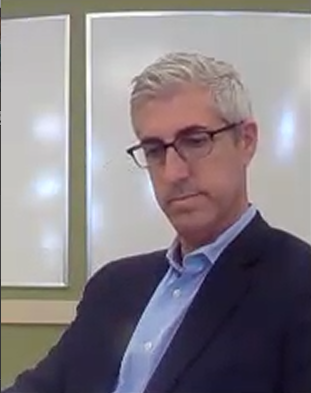
During the October 10th meeting, Shropshire raised concerns suggesting that the Prineville Review (albeit not by name) may not be considered “institutional media” by their own policy simply because it does not produce a physical print edition and is not a major online news source like CNN.
It was unclear whether Shropshire was aware of the many news organizations in Oregon and elsewhere that provide only digital distribution and follow professional news media practices.
A 2016 opinion from the Oregon Attorney General to the OGEC outlined several factors to consider in determining who qualifies as a representative of the media. However, Shropshire did not reference key aspects of that opinion, which strongly clarify that smaller publications and their reporters, like those at the Prineville Review, are indeed considered “representatives of the news media.”
Shropshire also implied that smaller publications were not held to the same journalistic ethical standards simply because they do not report to the board of directors of larger media companies.
“So the concern of course of the ‘institutional media’ as it is are subject to a very strict code of ethics by the people who own the company, like the shareholders or the big bosses,” said Shropshire.
The Prineville Review publicly follows the Code of Ethics set forth by the Society of Professional Journalists, of which this reporter is also a member. The code emphasizes the obligation to “recognize a special obligation to serve as watchdogs over public affairs and government,” ensuring that the public’s business is conducted openly and that public records are accessible to all.
Shropshire also mentioned that he was unaware of reporters, presumably referring to those at the Prineville Review, who had not adhered to the requirement not to report the contents of executive sessions. He cautioned the board that adopting a media policy could provoke litigation by members of the press.
“This is an area that is riff for litigation on both sides, so I guess I would tell you you’re potentially bleeding edge of an issue that a lot of people will take an interest in if you decide to take it forward — there could be lawsuit if you decided to do this,” Shropshire said.
Bedortha responded by asking, “Do we want to be one of the first to step out?”
Such action by the CCCD would also be a drastic departure from the already wide acceptance of the Prineville Review from other public bodies, including the Board of County Commissioners, City of Prineville Council, Crook County Parks & Rec, and countless other commissions and advisory bodies formed under those respective public and governing bodies throughout Crook County.
A wider and ongoing Prineville Review investigation has been uncovering that many special districts in Crook County (including the CCCD) with elected boards with taxing authority, are struggling to comply with even the most basic requirements under the public records and meetings law.
The Prineville Review was launched earlier this year as Crook County’s newest general-interest news publication. Despite having only a couple of staff, the publication is experiencing rapid growth in readership and is preparing to expand with hiring additional staff and freelance reporters, as well as other contributors. The publication is free and does not require a subscription.
As part of work for another publication, this reporter had previously challenged another media access restriction in 2023 when the Oregon State Fair Council (appointed by the governor) implemented a “media policy” to limit access to fairground events. The policy required reporters to be “accredited” through a speech-licensing scheme and allowed officials to correct reporting it deemed unfair or inaccurate in order for a media organization to maintain “accreditation”. This effort garnered attention from the Greater Oregon SPJ, the Reporter’s Committee for Freedom of the Press, and was reported by Willamette Week. After a motion for an injunction was filed in Marion County Circuit Court in February, the Oregon State Fair replaced its private counsel with a trial counsel with the Oregon Department of Justice, which quickly argued that the issue was “moot” and that the council had rescinded the policy.
More board deliberations in violation of the public meetings law
Prineville Review photojournalist Zack Calvo discovered that prior to the October 10th executive session, CCCD board members Bedortha and Wood, along with district staff, engaged in a discussion about ongoing reporting by the Prineville Review, specifically referencing the publication’s October 2nd story.
This discussion appears to have violated Oregon’s public meetings laws, as it was not a permissible executive session topic and took place outside of a public meeting by a quorum of the CCCD Board.
During the discussion, CCCD’s contracted bookkeeper, Sherra Moore, falsely claimed that the Prineville Review’s October 2nd story contained threats against Bedortha.
“There’s something about going after you now if he doesn’t get information,” Moore said to Bedortha, reportedly referring to this reporter after asking if he had seen the article.
Board Chair Wood reportedly responded, “We’ll address that today.”
Bedortha also alleged during the conversation that he had been misquoted in the Prineville Review’s article following his first board meeting in September. He told the Prineville Review he would only comment on the record but not if the conversation was recorded.
Editorial Note: Mr. Bedortha is a public official. To ensure accuracy, we recorded the interview despite his request not to, but we are respecting his intent by refraining from releasing the audio. Following a review conducted last month, we stand by the accuracy of our reporting and quotations from Mr. Bedortha in the October 2nd story. Additionally, our story did not contain any threats or insinuations of “going after” Director Bedortha if we did not “get information”, and such conduct would be entirely unacceptable. The full story is available here.
In the same conversation, Bedortha and Wood also discussed the possible attendance of a “convicted felon” at the later scheduled meeting that day but did not name the individual.
The incident was included in this publication’s October 16 grievance (the third grievance), which the CCCD has failed to address within the required 21 days under Oregon law. A fifth grievance could be filed regarding the CCCD’s ongoing failures to provide adequate notice of its meetings, as required by law.
During the meeting following initial publication, Chairperson Jamie Wood apologized for failing to provide specific notice to the Prineville Review and interested persons. Part of the issues prompted the past grievances by the Prineville Review and injunctive relief claim by this reporter in Crook County Circuit Court due to the district’s repeated failure to provide notices as required under the law. The CCCD started to provide notice of its meetings in September.
A fifth grievance may be filed by the Prineville Review for the CCCD’s ongoing failures to provide specific notice of its meetings as required under the law.
Upcoming coverage
The Prineville Review will provide a free livestream of today’s 1 p.m. public meeting on Facebook at this link. The public can also attend in-person at the Crook County Library. This story is part of a ongoing series involving the Crook County Cemetery District. Check back for later coverage and updates.
Note: This story was updated shortly after publication to provide clarity about Yulstat’s appointment, remove a duplicate paragraph concerning the library meeting space in August, and provide details regarding Wood’s acknowledgement about not providing specific notice of its Nov. 21st meeting after initial publication.
Join the discussion on Facebook or X (formally Twitter).
Mr. Alderman is an investigative journalist specializing in government transparency, non-profit accountability, consumer protection, and is a subject matter expert on Oregon’s public records and meetings laws. As a former U.S. Army Military Police Officer, he brings a disciplined investigative approach to his reporting that has frequently exposed ethics violations, financial mismanagement, and transparency failures by public officials and agencies.


